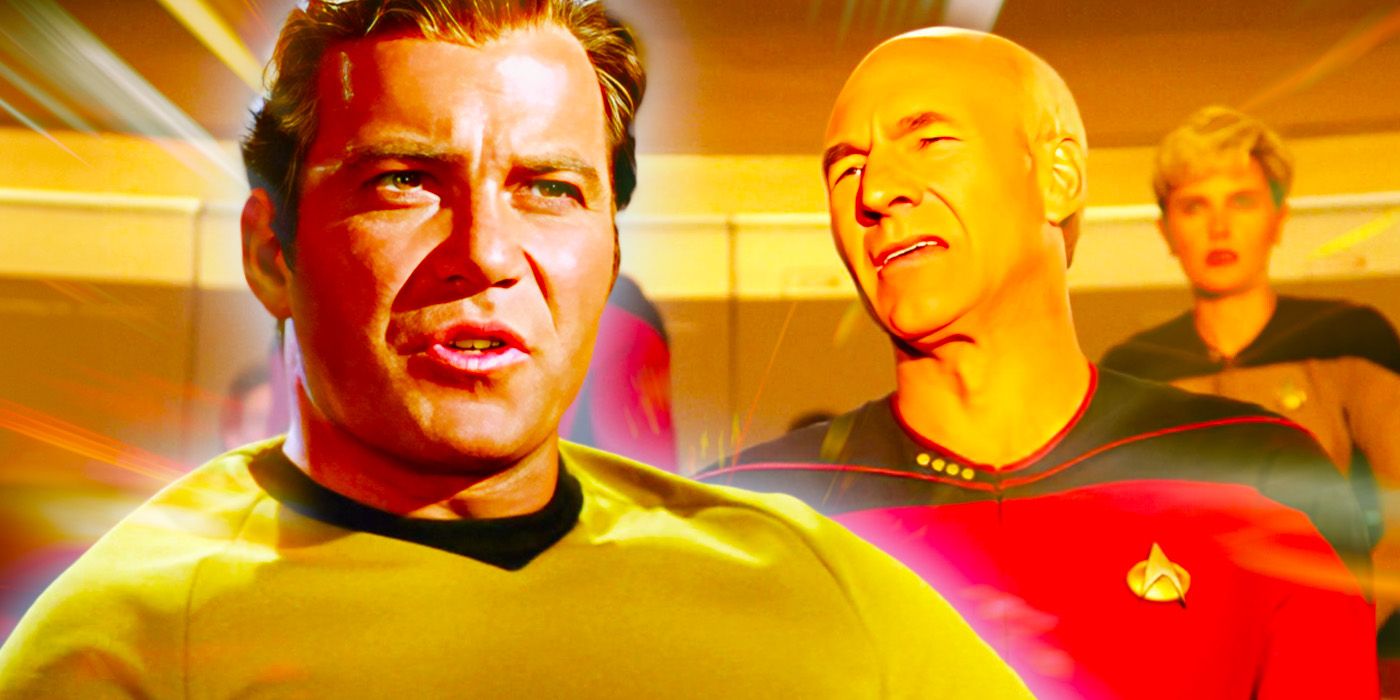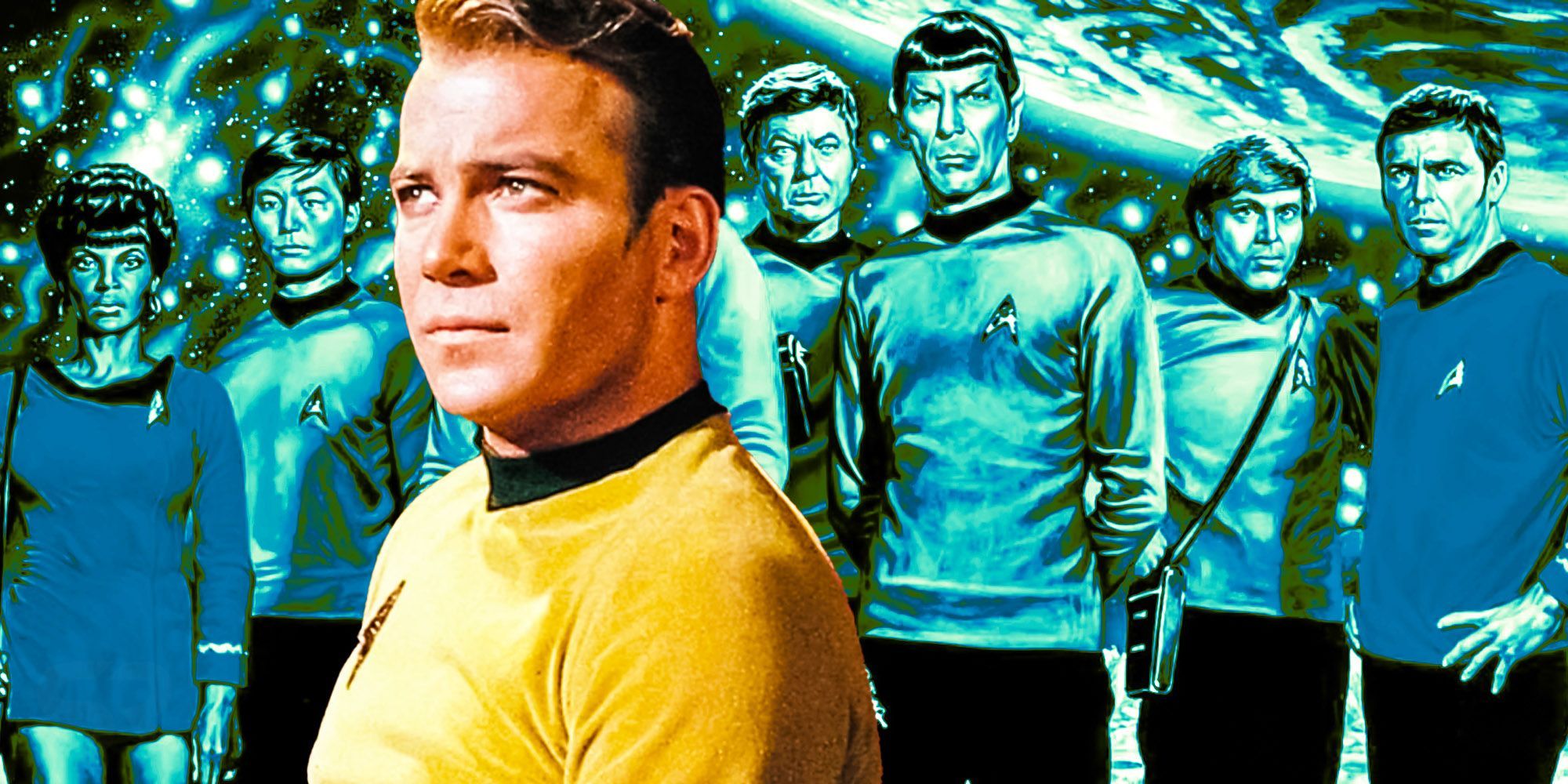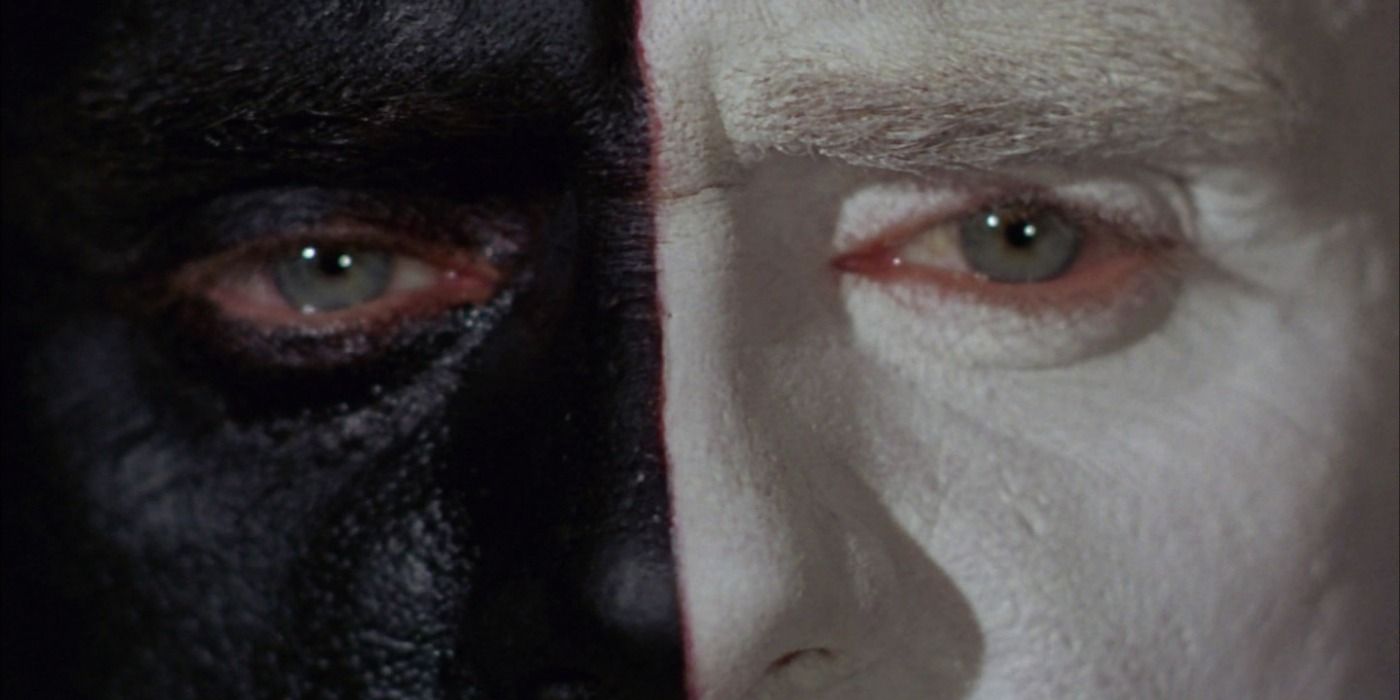Star Trek has always loved a good moral message, but these two episodes from TOS and TNG are particularly heavy-handed.

Summary
- Star Trek episodes often tackle relevant social and political issues with a heavy-handed moral message.
- “Let That Be Your Last Battlefield” and “Symbiosis” both deliver their moral messages in a less subtle manner.
- Despite some episodes being too heavy-handed, Star Trek celebrates diversity and acceptance in its messages.
The Star Trek franchise is no stranger to a strong moral message, but these episodes from Star Trek: The Original Series and Star Trek: The Next Generation are particularly heavy-handed. Since its inception in 1966, Star Trek has woven social commentary into its outer space adventures. Not only was the cast of TOS diverse for the time, but Captain James T. Kirk (William Shatner) and the crew of the USS Enterprise often encountered alien civilizations that mirrored elements of Earth cultures. This allowed Star Trek to tackle relevant issues within a clever science-fiction framework.
In Star Trek: The Original Series season 3, episode 15, “Let That Be Your Last Battlefield,” Captain Kirk and the Enterprise rescue two survivors, Bele (Frank Gorshin) and Lokai (Lou Antonio), from a planet devastated by war, which leads to an obvious moral message about tolerance. Star Trek: The Next Generation followed in the footsteps of TOS, often tackling the political and social issues of the time. The story in TNG season 1, episode 22, “Symbiosis” begins similarly, with the USS Enterprise-D rescuing aliens from opposite sides of a conflict, and its moral message is equally heavy-handed.

Star Trek: The Original Series Cast & Character Guide
Star Trek: The Original Series features some of the most iconic characters in all of science fiction with the crew of the original USS Enterprise.
2 Star Trek TOS & TNG Episodes That Hit Fans Over The Head
Star Trek: The Original Series Season 3, Episode 15 (“Let That Be Your Last Battlefield”) & Star Trek: The Next Generation Season 1, Episode 22 (“Symbiosis”)
In Star Trek: The Original Series‘ “Let That Be Your Last Battlefield,” both Bele and Lokai have highly pigmented skin that is black on one side and white on the other. Bele has black on the right side of his face and white on the other, while Lokai’s coloring is the opposite. This distinction matters a great deal to the aliens, as they see one another as inferior, much to the confusion of the Enterprise crew. Despite being the last of their kind, the two survivors continue to pursue one another at the conclusion of the episode, as Kirk laments that all they have left is their hate.
Although Star Trek: The Next Generation also celebrated acceptance and tolerance, “Symbiosis” takes on a different socially relevant topic. When Captain Picard and the Enterprise-D rescue four passengers from a freighter, they soon discover that two of the passengers are drug addicts, the Ornarans, while the other two, the Brekkians, provide them with drugs. Captain Picard and Dr. Beverly Crusher (Gates McFadden) soon realize that the “illness” that plagues the Ornarans is actually withdrawal from the potent drug to which they have become addicted. After this realization, Dr. Crusher insists that Picard tell the Ornarans the truth, but Picard reminds her this would violate the Prime Directive.
Star Trek Has Always Tackled Tough Moral & Political Issues
Infinite Diversity in Infinite Combinations

From the earliest episodes of Star Trek: The Original Series through the currently airing Star Trek on Paramount+ shows, Star Trek has always offered commentary on relevant social and political issues. Whether they’re taking on prejudice, drugs, gender roles, or climate change, Star Trek has never shied away from delivering a strong moral message, many of which remain surprisingly relevant today. While some stories may come across as too heavy-handed – such as the corny “just say no” speech given by Lt. Tasha Yar (Denise Crosby) in “Symbiosis” – the messages are generally good ones, celebrating diversity and acceptance.
Most of the cast and crew on TNG disliked Yar’s obvious anti-drug speech in “Symbiosis,” but producer Maurice Hurley insisted on keeping it in.
TOS’s “Let That Be Your Last Battlefield” and TNG’s “Symbiosis” work a little too hard to make sure their message gets across, but many Star Trek episodes deliver their message with more clever subtlety. Still, while it’s true most people do not need to be told that hate is destructive or that drugs are bad, even the most heavy-handed message could still reach somebody. Perhaps more than anything else, the Vulcan philosophy of Infinite Diversity in Infinite Combinations captures the heart of Star Trek and underlines the franchise’s inherently political nature.





